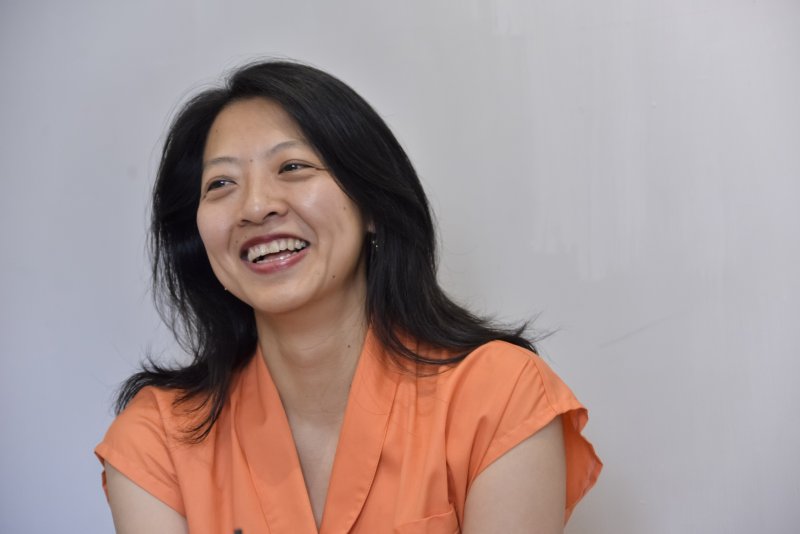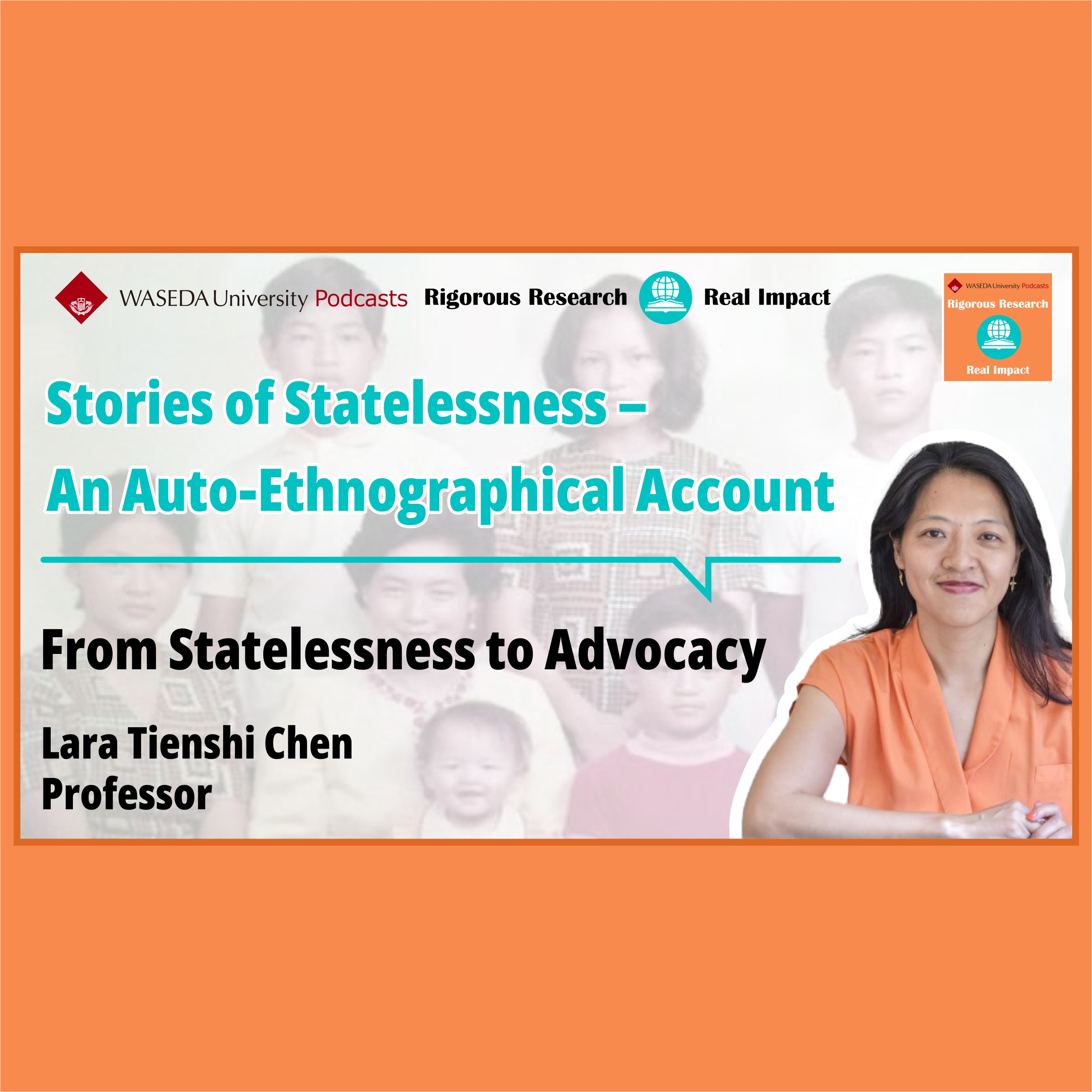[Podcast Column] What It Means to Be Stateless
Mon, Apr 21, 2025-
Tags
The first 8-episode series of Waseda University’s English podcast “Rigorous Research, Real Impact” is currently streaming for free on Spotify, Amazon Music, Apple Podcasts, and YouTube.
This column features an excerpt from episode 1 “Stories of Statelessness: An Auto-Ethnographical Account,” the first of two episodes in which Professor Lara Tienshi Chen of the School of International Studies shares her personal experience living as a stateless person and recounts how this influenced her decision to research statelessness, culminating in her book “Stateless.”
You can read the full transcript by clicking the above episode banner.
Question: What is “statelessness”?
Professor Chen:
First of all, we have to share the definition of statelessness or stateless people. They are the people not recognized to be nationals of any state. So according to the UNHCR, there are 4.2 million people in the world reported as stateless. However, the actual number is estimated to be higher, I think it will be over 10 million.
The important thing is that the term “stateless people” includes those whose nationality is registered as undefined on their identity documents issued by the country of residence.
There are also situations often observed in Japan where the section for displaying nationality or region on a person’s identity document indicates that the person is a national of country A when in reality the person is not registered as a national by country A. This leaves the people in the situation of statelessness or where their nationality is unclear. So, I think that’s why the number could be much higher.
Question: Can you describe your experience being categorized as “stateless” yourself for some 30 years?
Professor Chen:
Yeah, I lived as a stateless person for over 30 years. I was born and raised in Yokohama to Chinese parents. My father is 103 years old today. He was born in Manchuria, and he experienced transitions in government many times. My parents escaped the hardships of World War II and the civil war in China and moved to Taiwan, then moved to Japan in the 1950s. In 1972, Japan normalized diplomatic relations with the People’s Republic of China while it broke with the Republic of China, Taiwan.
My family became stateless aliens in Japan with this event in 1972 when I was just a one-year-old. And our family was stateless aliens with legitimate residence status. Therefore, legally, I could go to school and enjoy health insurance. However, because social awareness of statelessness is very low, I experienced a lot of discrimination and hardship.
For example, when applying to a private elementary school, teachers were hesitant to accept me because I was stateless. And when I was studying in university, I needed to rent an apartment, but the landlord hesitated because of statelessness and asked for guarantors and the bank balance certificates of my guarantors. It was hard for me to apply for scholarships and, of course, get a job as well.
About the Guest:
Professor Lara Tienshi Chen obtained her PhD in International Political Economy from the University of Tsukuba. She went on to conduct research at the Chinese University of Hong Kong, Harvard University, and the University of Tokyo. She worked for the National Musuem of Ethnology, Osaka prior to joining Waseda’s School of International Liberal Studies in 2013. Professor Chen is also the founder of the NPO Stateless Network and works closely with the student volunteer club Stateless Network Youth.


![[Podcast Column] What It Means to Be Stateless](https://www.waseda.jp/top/en/assets/uploads/2025/04/Podcast-Column-Ep-1.png)












